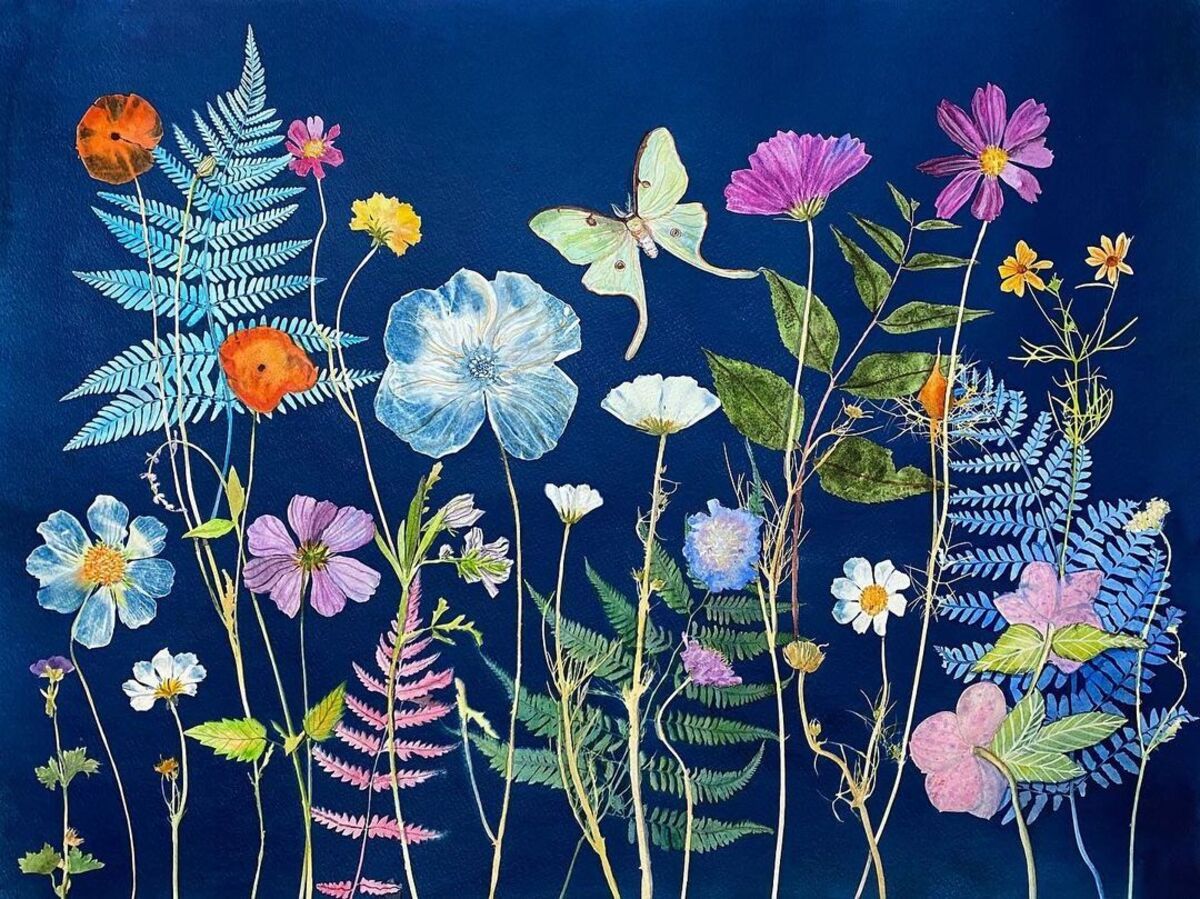
In a world where innovation and originality reign supreme, creativity is a highly sought-after trait. It fuels our imagination, allowing us to think outside the box and come up with unique solutions to complex problems. Whether you are an artist, a scientist, a writer, or an entrepreneur, creativity plays a vital role in your success.
But what exactly is creativity? It’s more than just being able to draw a breathtaking painting or write a captivating story. Creativity encompasses a wide range of skills and abilities, and its importance extends beyond the arts. From a neurological perspective, creativity is a complex process that involves the integration of various cognitive functions, including imagination, intuition, and critical thinking.
In this article, we will delve into the fascinating world of creativity and explore 20 intriguing facts about this fundamental human trait. From the benefits of nurturing creativity to famous creative minds throughout history, get ready to unravel the mysteries of what makes us creative beings.
Key Takeaways:
- Creativity is not just about art; it’s about problem-solving and thinking outside the box in any field. It can be learned, thrives on curiosity, and can make a positive impact on the world.
- Creativity can be sparked by limitations, influenced by mood, and hindered by self-doubt. It’s a lifelong journey of exploration and growth, and it requires persistence and resilience to overcome obstacles.
Creativity is not limited to the arts.
Contrary to popular belief, creativity extends beyond the realms of painting, writing, and music. It encompasses innovative problem-solving, critical thinking, and finding unique solutions across various fields and industries.
Creativity can be learned and nurtured.
While some may argue that creativity is innate, studies have shown that it can be developed and honed through practice and exercises that stimulate the imagination. Just like any other skill, creativity can be cultivated and expanded upon with time and effort.
Creativity often thrives in a conducive environment.
An environment that encourages and supports creative thinking can significantly boost one’s ability to come up with innovative ideas. Collaboration, open-mindedness, and a sense of freedom are key elements in fostering a creative atmosphere.
Creativity is not restricted to any age group.
Creativity can manifest at any age, from young children exploring their imaginations to older adults discovering new passions and ideas. The notion that creativity is reserved only for the young is a misconception.
Creativity can be sparked by limitations.
Constraints and limitations can actually fuel creative thinking by forcing individuals to think outside the box and find alternative solutions. The constraints can act as a catalyst for creativity to flourish.
Creativity thrives on curiosity and exploration.
Inquisitiveness and a willingness to explore different perspectives and ideas are important drivers of creativity. Being open to new experiences and seeking out knowledge can stimulate innovative thinking.
Creativity is subjective.
What is considered creative varies from person to person. Each individual’s unique perspective and experiences shape their creative expressions, resulting in a diverse range of creative outputs.
Creativity requires risk-taking.
Stepping outside of one’s comfort zone and taking risks is often a crucial component of the creative process. Embracing uncertainty and being willing to make mistakes can lead to breakthrough ideas and innovative solutions.
Creativity can be enhanced by mindfulness.
Practicing mindfulness and being present in the moment can enhance creativity by allowing individuals to fully engage with their thoughts and ideas. Mindfulness helps to remove distractions and fosters deeper connections with one’s creative instincts.
Creativity can be influenced by the environment.
The physical surroundings and the atmosphere in which one works or lives can have a significant impact on creativity. A well-designed space with adequate lighting, colors, and comfortable surroundings can stimulate and inspire creative thinking.
Creativity is a process.
Coming up with innovative ideas and creations is not always instantaneous. Creativity often involves a series of steps, including research, brainstorming, experimentation, and refinement, before reaching a final result.
Creativity can be enhanced through collaboration.
Working with others from different backgrounds and disciplines can spark new ideas and perspectives, leading to more creative solutions. Collaborative environments promote the sharing of knowledge and the generation of unique concepts.
Creativity can be affected by mood and emotions.
Emotional states can impact a person’s creative output. While positive emotions can enhance creativity, challenging emotions can also provide a source of inspiration and drive individuals to express their thoughts and feelings in creative ways.
Creativity requires persistence and resilience.
The creative process can be challenging and full of obstacles. Overcoming setbacks, embracing failure as a learning opportunity, and continuing to push through difficulties are essential qualities for nurturing creativity.
Creativity can thrive with diverse perspectives.
Exposing oneself to different perspectives and experiences can enhance creative thinking. Engaging with people from different cultural backgrounds, exploring diverse art forms, and seeking out alternative opinions can broaden one’s creative horizons.
Creativity is influenced by life experiences.
Personal experiences, both positive and negative, play a crucial role in shaping creativity. Life events, relationships, and challenges can serve as sources of inspiration and influence creative expressions.
Creativity can be hindered by self-doubt and fear of judgment.
Self-doubt and the fear of being judged can stifle creative thinking. Overcoming these barriers by embracing vulnerability and developing confidence in one’s creative abilities is essential for unleashing true creativity.
Creativity can be a form of self-expression.
Creativity allows individuals to express thoughts, emotions, and ideas in unique and meaningful ways. It provides a platform for personal storytelling and communication, fostering connections and understanding.
Creativity is a lifelong journey.
Creativity is not a destination but an ongoing process of exploration, learning, and growth. It evolves and adapts with time, continually presenting new opportunities for self-expression and innovation.
Creativity can make a positive impact.
Creative ideas and solutions have the power to bring about positive change. Whether it’s in the fields of art, technology, business, or social change, creativity has the potential to shape a better future.
Conclusion
Creativity is a fascinating concept that plays a significant role in various aspects of our lives. Hopefully, these 20 facts about creativity have given you a deeper understanding of its importance and impact. Remember, creativity is not limited to artists or designers; it is a skill that can be cultivated and applied in any field or industry. Embracing our innate creativity can lead to innovation, problem-solving, and personal growth. So, don’t be afraid to think outside the box, explore new ideas, and let your imagination soar. Nurture your creativity, and you’ll be amazed at the endless possibilities it can bring.
FAQs
Q: What is creativity?
A: Creativity is the ability to generate unique and original ideas, think in innovative ways, and find new solutions to problems.
Q: Can creativity be learned?
A: Yes, creativity can be learned and developed through various practices such as brainstorming, exploring new experiences, and fostering a curious mindset.
Q: Is creativity only for artists?
A: No, creativity is not limited to artists. It is a valuable skill that can be applied in any field, including business, science, technology, and everyday life.
Q: How does creativity benefit us?
A: Creativity can lead to increased problem-solving abilities, innovation, personal growth, enhanced self-expression, and improved mental well-being.
Q: How can I nurture my creativity?
A: You can nurture creativity by allowing yourself to take risks, embracing failure as a learning opportunity, practicing mindfulness, engaging in creative hobbies, and seeking inspiration from various sources.
Creativity knows no bounds, and these facts barely scratch the surface of its incredible power. Want to explore more facets of this fascinating topic? Check out our articles on National Creativity Day, where you can learn how this special day celebrates innovation and imagination. If you're curious about the link between poetry and the creative mind, our piece on Poetry and the Creative Mind Day delves into this intriguing connection. For a glimpse into the world's most prestigious celebration of creativity in advertising and communications, don't miss our article on the Cannes Lions International Festival of Creativity.
Was this page helpful?
Our commitment to delivering trustworthy and engaging content is at the heart of what we do. Each fact on our site is contributed by real users like you, bringing a wealth of diverse insights and information. To ensure the highest standards of accuracy and reliability, our dedicated editors meticulously review each submission. This process guarantees that the facts we share are not only fascinating but also credible. Trust in our commitment to quality and authenticity as you explore and learn with us.


